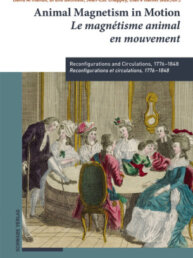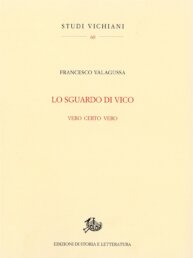The Institute for the History of Philosophy and Science in Modern Age (ISPF) is committed to the study, dissemination and promotion of historical-philosophical and historical-scientific culture. A focus and a critical reflection on the identity of the humanities characterize the research conducted at the ISPF. The forms that these disciplines take in the rapidly changing scenarios of contemporary society affect the very constitution of the image of man, of cultural identity and intercultural relations, and therefore require a methodologically well-founded study.
⸻ RESEARCH LINES
The development of rigorous critical editions of philosophical texts is the traditional core of the ISPF’s scientific activity, aimed at preserving and conveying to the reader the most authentic essence of the original works. The edition of Giambattista Vico’s opera omnia entails the publication of at least 14 volumes, containing writings in manuscript and printed form. The National Edition of the Works of Antonio Vallisneri envisages the publication of more than 40 volumes of manuscript and edited works, an inventory and an online edition of the correspondence, as well as the ‘Library of the National Edition’ containing studies and materials instrumental for the editorial work. The more recent project of the National Edition of the works of Carlo Cattaneo deals in particular with the writings that appeared in the first series of the ‘Politecnico’, the journal published by the Milanese intellectual between 1839 and 1844.
⸻ RESEARCH LINES
Studying the past to understand the present and improve the future. This advice reveals all its validity when looking at the complex networks of cultural transfer that have marked relations between Europe, the Mediterranean and the East throughout the modern and contemporary age. These plural identities and cultural interactions need to be profoundly understood in their historical and critical context to grasp the meaning, features and significance of philosophical, religious, political, and social speculation in the modern age and in the contemporary world. This means that the methods and techniques of investigation have to focus on reciprocal legacies within a multi- and inter-disciplinary concept, placing them within a historical-philosophical timeframe between early modernity and the present.
⸻ RESEARCH LINES
The history and philosophy of the sciences have long highlighted the constitutive relationship of the sciences to the social, cultural and political context. The legitimacy of the sciences, grounded in methods and practices that are rigorous but constantly open to self-correction, is by no means weakened, but on the contrary enriched by interactions with other forms of knowledge, including the humanities, equally aimed at addressing the urgencies of their times. Ongoing research investigates the richness of these interactions from the early modern age to the present day. […]
⸻ RESEARCH LINES
Can a philosophical concept expressed in a melologue, a video or a dramatized reading, be communicated to a wider audience than just experts? In the context of this line of research, theoretical and historical investigations are carried out about the most appropriate ways for conveying the contents of the humanities – especially those more relevant for individual and collective life – into artistic products. In order to experimentally apply and to monitor the results of the research, public ‘philosophical’ performances are planned, written and staged.
⸻ RESEARCH LINES
The purpose of this line of research is to look at philosophy in its historical dimension, i.e. philosophy as the content of an ever-renewing tradition free from dogmatic concerns. This line brings together the research contributions of the Institute’s scholars committed to the history of philosophy between the nineteenth and twentieth centuries. It integrates research on Italian thought in relation to European thought with new areas of study concerning philosophy, sciences, society and language of the arts in modern and contemporary times. The methodological basis is inspired by the techniques of historical-philosophical research. The book series Filosofia e scienza nell’età moderna e contemporanea, founded by Mario Dal Pra in Milan in 1971, is the privileged channel for disseminating the results of this line of research.
⸻ RESEARCH LINES
What is the usefulness, meaning and function of the humanities today? How are they transformed by the challenges of the present time? The ISPF Observatory on Humanities aims at renewing the questioning of the ‘human’ of the humanities, at exploring the new dimensions of the public life of knowledge, at investigating the transformations in the politics of knowledge and education; and, at the same time, it intends to probe these studies on concrete frontiers, from the pandemic and the environmental issue to the digital turn. On this last aspect, which is actually crucial for the new configurations of knowledge, the work of the Observatory is intertwined with that of the ISPF Centre for Digital Humanities.
⸻ NEWS AND EVENTS
11 giugno 2025
L’Edizione Nazionale delle Opere di Antonio Vallisneri nell’era digitale: tra passato, presente e futuro
Presentazione pubblica
4 giugno 2025
Presenzazione dell’edizione critica della Scienza nuova 1725 curata da Enrico Nuzzo
Book presentation
⸻ HIGHLIGHTS
5 July 2022
Pan/demìa. Osservatorio filosofico
The project ‘Pan/demìa. Philosophical Observatory’, was born out of the desire to explore the contribution of the human sciences in addressing and understanding the viral crisis: a virtual space dedicated to the most controversial and urgent issues arising from the irruption of the Coronavirus, to be investigated with the support of the thought of the great philosophers.


